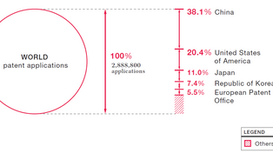Why do we need an IP system?
- Admin

- Apr 2, 2023
- 1 min read
Updated: Jun 14, 2023

Throughout human history, individuals have relied on their imagination, innovation, and creativity to address challenges and convey concepts by drawing upon current knowledge. Countless inventions have been developed over the years, from the Mesopotamian writing system and the Chinese abacus to the Syrian astrolabe and the ancient Indian observatory, as well as more recent discoveries such as transistors, semiconductors, nanotechnology, and recombinant DNA drugs. These achievements are a testament to the imaginative people worldwide who have fueled the advancement of technology. The intellectual property (IP) system was created to safeguard humanity's intellectual accomplishments, not just at the national level but also across borders. Many IP-based products, such as French wines, German precision machine tools, and Hollywood movies, have penetrated international markets. However, if the IP that underlies these products is not protected in other countries, they may be freely pirated or plagiarized, causing significant harm to the rightful owners. To address the issue of international IP rights protection, countries participate in global IP treaties to align and harmonize their IP regulations as much as possible. IP serves as a catalyst for human ingenuity and plays a critical part in economic and social advancement, as evidenced by Abraham Lincoln's statement that it has "added the fuel of interest to the fire of genius."






































Comments